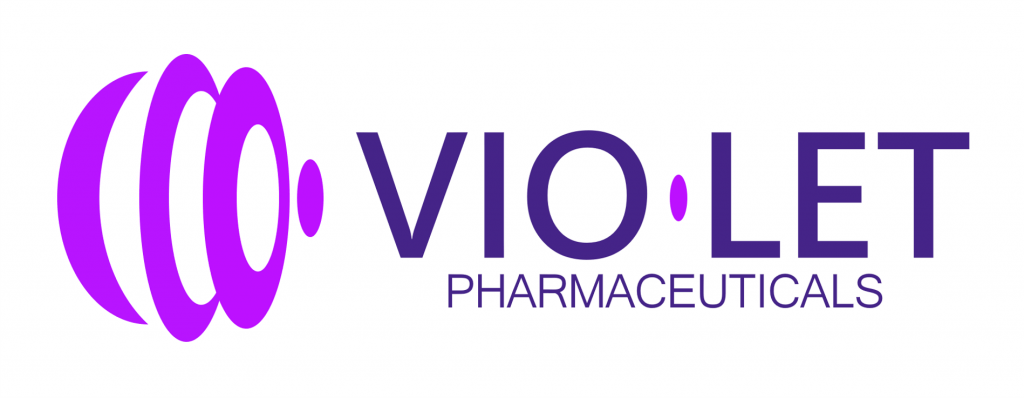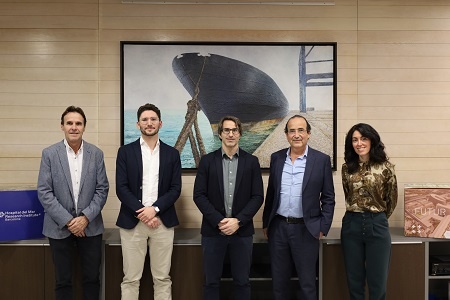NEW HAVEN, Conn. and UTRECHT, The Netherlands and CAMBRIDGE, Mass., Jan. 12, 2025 (GLOBE NEWSWIRE) — Biohaven Ltd. (NYSE: BHVN) and Merus N.V. (Nasdaq:MRUS), today announced a research collaboration and license agreement to co-develop three novel bispecific antibody drug conjugates (ADCs), leveraging Merus’ leading Biclonics® technology platform, and Biohaven’s next-generation ADC conjugation and payload platform technologies.
Under the terms of the agreement, Biohaven is responsible for the preclinical ADC generation of three Merus bispecific antibodies under mutually agreed research plans. The agreement includes two Merus bispecific programs generated using the Biclonics® platform, and one program under preclinical research by Merus. Each program is subject to mutual agreement for advancement to further development, with the parties then sharing subsequent external development costs and commercialization, if advanced.
”We’re excited to collaborate with Biohaven, leveraging their broad range of linker/payload and conjugation technologies, and expertise with the research and development of ADCs, to rapidly advance bispecific antibody candidate ADCs based on the Merus Biclonics® platform,” said Peter B. Silverman, Chief Operating Officer of Merus. “We believe that the combination of our Biclonics® technology, validated by the recent FDA approval of Bizengri® and continued clinical success with petosemtamab, together with the Biohaven suite of ADC technologies, has the potential to generate new and differentiated bispecific therapies with greater potency and selectivity over currently available monoclonal ADC approaches.”
“We believe this collaboration with Merus will accelerate our ability to create highly differentiated multispecific ADCs, leveraging Biohaven’s innovative conjugation and payload technologies to deliver optimized ADCs with the potential to significantly benefit patients across various cancer types through an enhanced efficacy and safety profile,” added Brian Lestini, President, Oncology of Biohaven.
Pursuant to the transaction, Merus will receive an upfront payment and license fee at ADC candidate nomination of the first program, with Merus to assume the preclinical bispecific antibody generation cost, and Biohaven to assume the preclinical ADC generation cost. Thereafter, upon mutual agreement to advance each program, the parties plan to share further development and commercialization costs.
About Merus
Merus is a clinical-stage oncology company developing innovative full-length human bispecific and trispecific antibody therapeutics, referred to as Multiclonics®. Multiclonics® are manufactured using industry standard processes and have been observed in preclinical and clinical studies to have several of the same features of conventional human monoclonal antibodies, such as long half-life and low immunogenicity. For additional information, please visit Merus’ website and LinkedIn.
About Biohaven
Biohaven is a biopharmaceutical company focused on the discovery, development, and commercialization of life-changing treatments in key therapeutic areas, including immunology, neuroscience, and oncology. Biohaven is advancing its innovative portfolio of therapeutics, leveraging its proven drug development experience and multiple proprietary drug development platforms. Biohaven’s extensive clinical and nonclinical programs include Kv7 ion channel modulation for epilepsy and mood disorders; extracellular protein degradation for immunological diseases; TRPM3 antagonism for migraine and neuropathic pain; TYK2/JAK1 inhibition for neuroinflammatory disorders; glutamate modulation for OCD and SCA (spinocerebellar ataxia); myostatin inhibition for neuromuscular and metabolic diseases, including SMA and obesity; antibody recruiting bispecific molecules and antibody drug conjugates for cancer. For more information, visit www.biohaven.com.
Merus Forward-Looking Statement
This press release contains forward-looking statements within the meaning of the Private Securities Litigation Reform Act of 1995. All statements contained in this press release that do not relate to matters of historical fact should be considered forward-looking statements, including without limitation statements regarding the potential preclinical and clinical development of any bispecific ADC under the parties’ agreement, the commercial potential of such programs, any future payments Merus may receive under the agreement, the potential of leveraging Biohaven’s broad range of linker/payload and conjugation technologies; Biohaven’s expertise with the research and development of ADCs; the collaboration’s potential to rapidly advance bispecific antibody candidate ADCs based on the Merus Biclonics platform; our belief that the combination of our Biclonics technology has been validated by the recent FDA approval of Bizengri® and continued clinical success with petosemtamab; the potential of the collaboration to generate new and differentiated bispecific therapies with greater potency and selectivity over currently available monocloncal ADC approaches; and the ability to create highly differentiated multispecific ADCs, leveraging Biohaven’s innovative conjugation and payload technologies to deliver optimized ADCs with the potential to significantly benefit patients across various cancer types through an enhanced efficacy and safety profile; and our belief in the merits of the parties’ technologies and capability to develop new therapeutics. These statements are neither promises nor guarantees, but involve known and unknown risks, uncertainties and other important factors that may cause our actual results, performance or achievements to be materially different from any future results, performance or achievements expressed or implied by the forward-looking statements, including, but not limited to, the following: our need for additional funding, which may not be available and which may require us to restrict our operations or require us to relinquish rights to our technologies or antibody candidates; potential delays in regulatory approval, which would impact our ability to commercialize our product candidates and affect our ability to generate revenue; the lengthy and expensive process of clinical drug development, which has an uncertain outcome; the unpredictable nature of our early stage development efforts for marketable drugs; potential delays in enrollment of patients, which could affect the receipt of necessary regulatory approvals; our reliance on third parties to conduct our clinical trials and the potential for those third parties to not perform satisfactorily; impacts of the volatility in the global economy, including global instability, including the ongoing conflicts in Europe and the Middle East; we may not identify suitable Biclonics® or bispecific antibody candidates under our collaborations or our collaborators may fail to perform adequately under our collaborations; our reliance on third parties to manufacture our product candidates, which may delay, prevent or impair our development and commercialization efforts; protection of our proprietary technology; our patents may be found invalid, unenforceable, circumvented by competitors and our patent applications may be found not to comply with the rules and regulations of patentability; we may fail to prevail in potential lawsuits for infringement of third-party intellectual property; and our registered or unregistered trademarks or trade names may be challenged, infringed, circumvented or declared generic or determined to be infringing on other marks.
These and other important factors discussed under the caption “Risk Factors” in our Quarterly Report on Form 10-Q for the period ended September 30, 2024, filed with the Securities and Exchange Commission, or SEC, on October 31, 2024, and our other reports filed with the SEC, could cause actual results to differ materially from those indicated by the forward-looking statements made in this press release. Any such forward-looking statements represent management’s estimates as of the date of this press release. While we may elect to update such forward-looking statements at some point in the future, we disclaim any obligation to do so, even if subsequent events cause our views to change, except as required under applicable law. These forward-looking statements should not be relied upon as representing our views as of any date subsequent to the date of this press release.
Multiclonics®, Biclonics® and Triclonics® are registered trademarks of Merus N.V.
Biohaven Forward-Looking Statement
This news release includes forward-looking statements within the meaning of the Private Securities Litigation Reform Act of 1995. The use of certain words, including “continue”, “plan”, “will”, “believe”, “may”, “expect”, “anticipate” and similar expressions, is intended to identify forward-looking statements. Investors are cautioned that any forward-looking statements, including statements regarding the future development, timing and potential marketing approval and commercialization of development candidates, are not guarantees of future performance or results and involve substantial risks and uncertainties. Actual results, developments and events may differ materially from those in the forward-looking statements as a result of various factors including: the expected timing, commencement and outcomes of Biohaven’s planned and ongoing clinical trials; the timing of planned interactions and filings with the FDA; the timing and outcome of expected regulatory filings; complying with applicable U.S. regulatory requirements; the potential commercialization of Biohaven’s product candidates; and the effectiveness and safety of Biohaven’s product candidates. Additional important factors to be considered in connection with forward-looking statements are described in Biohaven’s filings with the Securities and Exchange Commission, including within the sections titled “Risk Factors” and “Management’s Discussion and Analysis of Financial Condition and Results of Operations”. The forward-looking statements are made as of the date of this news release, and Biohaven does not undertake any obligation to update any forward-looking statements, whether as a result of new information, future events or otherwise, except as required by law.
CONTACT: Merus Investor and Media Inquiries:
Sherri Spear
Merus N.V.
SVP Investor Relations and Strategic Communications
617-821-3246
s.spear@merus.nl
Kathleen Farren
Merus N.V.
Assoc. Director IR/Corp Comms
617-230-4165
k.farren@merus.nl
BioHaven Investor and Media Inquiries:
Investor Contact:
Jennifer Porcelli
Vice President, Investor Relations
jennifer.porcelli@biohavenpharma.com
+1 (201) 248-0741
Media Contact:
Mike Beyer
Sam Brown Inc.
mikebeyer@sambrown.com
+1 (312) 961-2502

**************************************************************************************************
More info for healthcare startups : Healthcare Investors Database and Healthcare Investors Matchmaking .












